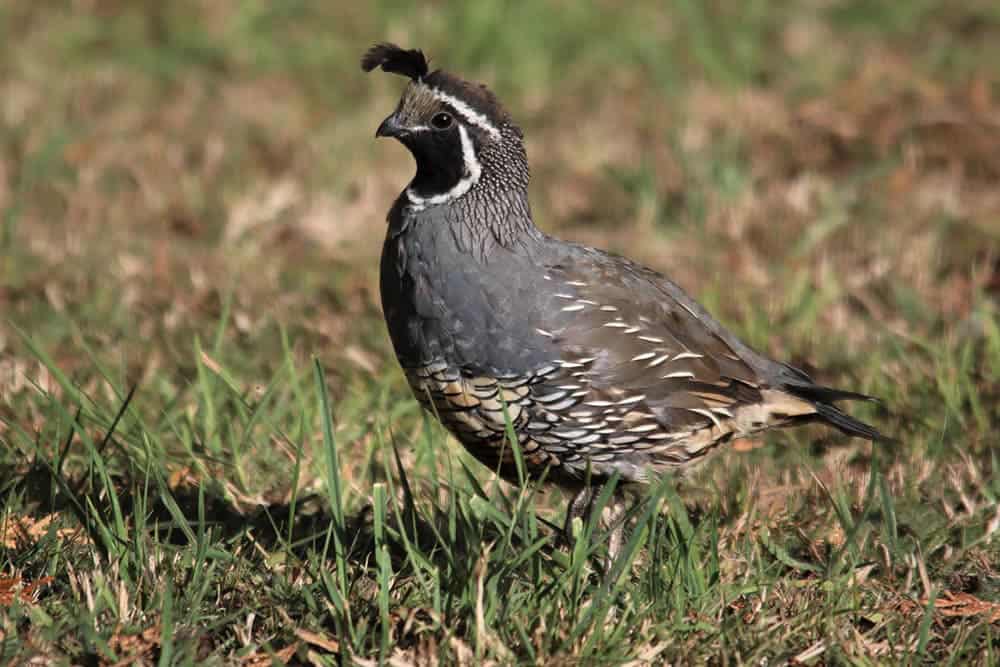Quail represent a viable alternative to larger poultry like chickens and hens because they are smaller, quieter, and easier to care for. They produce tasty meat and can be very prolific egg layers, although the amount of meat and size of eggs you get from the poultry is much lower. Qual might be small but the meat is highly prized and the bird is usually butchered at around 8 weeks, which means that raising them for meat can be quite lucrative indeed.

About The Quail
There are, in fact, more than 100 different breeds of quail and, like chickens, the ideal breed will depend on breeding purpose as well as your experience and facilities. The Coturnix Quail is generally considered one of the easiest breeds to raise and they have a generous meat yield with reasonable egg-laying capabilities. They are a very good all-rounder and an excellent breed for quail breeding beginners.
In captivity, this small bird will grow to approximately 5 inches tall and a fully grown adult will weigh approximately 5 ounces, with jumbo variants achieving double this weight. Commonly, you can expect a captive-bred quail to yield around 8 ounces of meat. Although they live up to four years in the wild, captive-bred birds will usually have a lifespan of two years.

The 6 Benefits Of Raising Quail For Meat & Eggs
Raising your own poultry is a good way to reduce your dependence on the food supply chain and ensure that you have a better understanding of where your food comes from. Chickens and other large poultry, however, take up a lot of room and they can be loud and smelly. Breeding quail offers the following benefits:
1. Quails Are Small
Quail grow to approximately five inches tall. It is recommended that each quail has one square foot of space, although it can be beneficial to offer more than this. While this does mean that their eggs are smaller and they yield less meat, it is one reason why they are considered viable backyard poultry.

2. Quail Are Quieter Than Chickens
Even if you are permitted to keep chickens in your yard, they can be loud. Your neighbors will likely complain about the noise, especially if you have a handful of them living with you. Quails are much quieter birds and are unlikely to stir nearby residents.
3. Quails Are Prolific Layers
The Coturnix quail can lay as many as 300 eggs per year, although 200 is a more likely yield for a backyard coop and some other breeds have a similarly high yield. The eggs are considered a delicacy and are popularly eaten boiled or steamed. They can also replace hen eggs in recipes, typically at a ratio of 2:1.
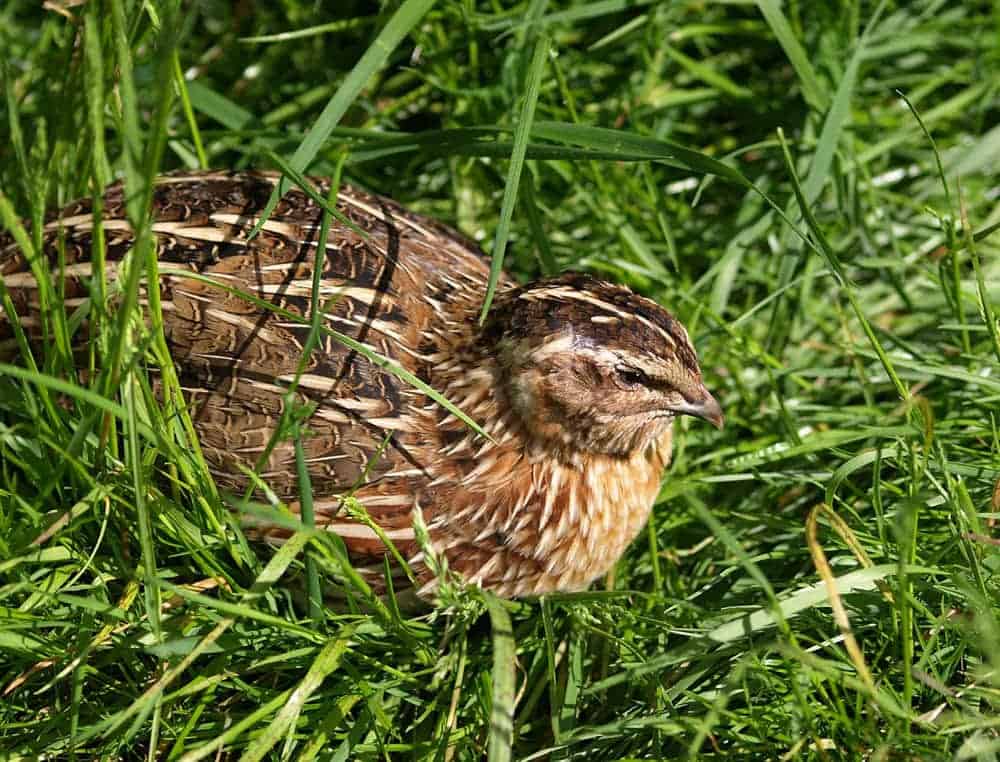
4. Quail Meat Is Highly Prized
As well as raising quail for your own consumption, the bird meat is highly prized by restaurants and home diners. Check the prices in your local area, if this is why you are starting breeding. Raising quail in a backyard coop is unlikely to become your primary revenue source, but it could be a profitable and rewarding sideline.
5. Quails Grow Quickly
This is also true of some chicken breeds, but quail grow to butcher size quickly. In fact, they are usually ready to be eaten by eight weeks of age. They will also start laying at around the same age.
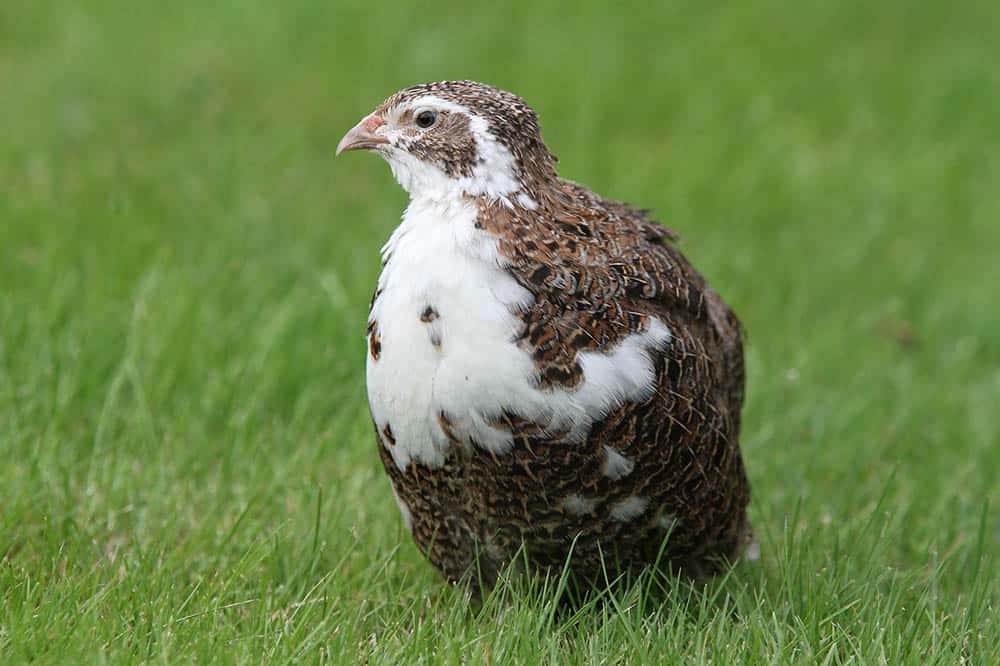
6. You May Not Need A Licence
If you are looking to establish a backyard coop, it might be necessary to have a poultry license in some states. But, in some instances, quail is not considered poultry and does not require the same license. Check with local authorities to determine whether you need a special license.

Quail Meat
Quail is high in vitamin C and higher in amino acids and minerals than chicken. Although classified as white meat, it has a darker color and deeper flavor than chicken meat. Some breeders raise their meat quail in a darkly lit environment. They are lively birds and will become energetic when in daylight. Keeping their environment dark means that they will move around less and put on more weight.
The meat tends to be more succulent when they have been raised in a darkly lit environment. If you don’t like the idea of keeping them in the dark, there are ways to cook the meat so that it is still tender and tasty, even when raised in a naturally well-lit space.
Quail can be fed up and ready to eat at eight weeks of age, but you will need to feed a high-protein feed to ensure this is the case.
Quail Meat Nutritional Values (per 100g)
| Calories: | 134 |
| Protein: | 22g |
| Carbohydrates: | 0g |
| Fat: | 4.5g |
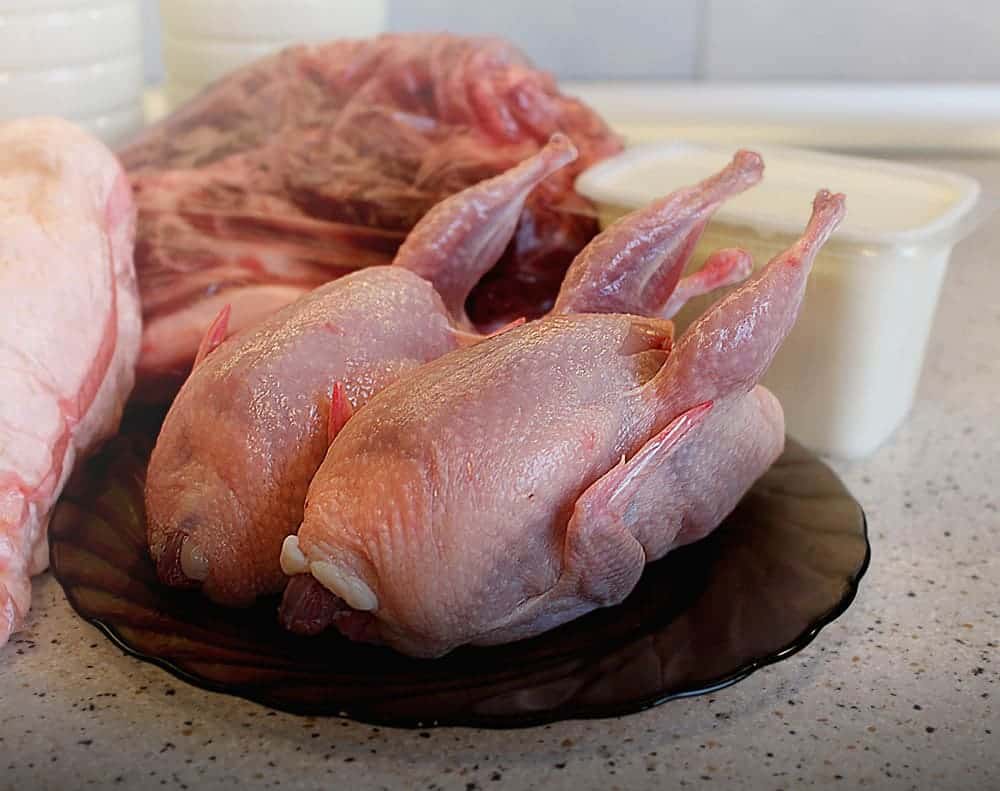
Quail Eggs
This small poultry bird is a prolific layer, potentially laying between 200 and 300 eggs a year. They will need a high calcium diet and you can buy layer feeds that cater to these specific needs. You do not need nest boxes because they will lay literally anywhere, but this may mean regular checking and removal of the eggs to ensure that they don’t get trampled on. Layers prefer natural daylight, and it will encourage improved laying if you can provide this.
Quail Egg Nutritional Values (per egg)
| Calories: | 14 |
| Protein: | 1g |
| Carbohydrates: | 1g |
| Fat: | 1g |
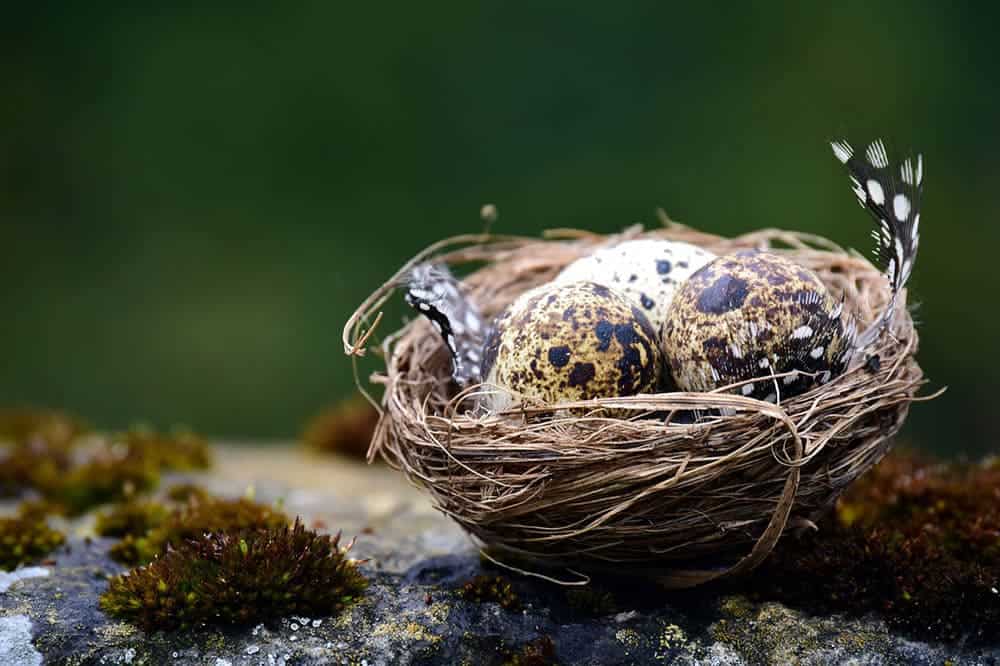
Secure Enclosure for Quails
Quail can fly and they are quite skittish. This means that free-roaming quail will make a getaway and escape from your yard. As such, you will need a secure enclosure. If you do allow free-roaming, which is good for nutrient variety that comes from natural foraging, then you must also incorporate netting or another means of keeping the bird in your yard. Each quail needs a minimum of one square foot of enclosure but will benefit from more space.
Enclosure Maintenance
Quail are hardy birds but they do need a clean and safe living environment. This means that their enclosure will need regular cleaning. Ensure that the enclosure is well-ventilated and try to provide an environment where their droppings are easy to clean away or are separated from their living environment using a cage or mesh bottom.
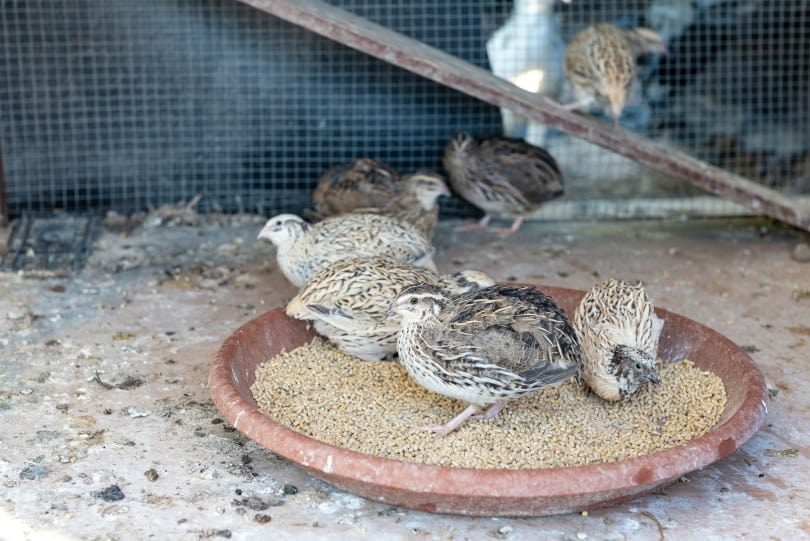
Raising Quail For Meat And Eggs
Quail are smaller than chickens and are a good option for a backyard coop because they are quieter birds and you may not need a special license to rear them. They also yield high-quality and highly sought-after meat and are considered prolific layers that can give you as many as 300 eggs, albeit relatively smaller ones, per year. While they do not require a lot of space and you may benefit by keeping them in a dimly lit enclosure if you are raising them for tender meat, they do require a clean and well-ventilated living environment.
Featured Image Credit: Pixabay
